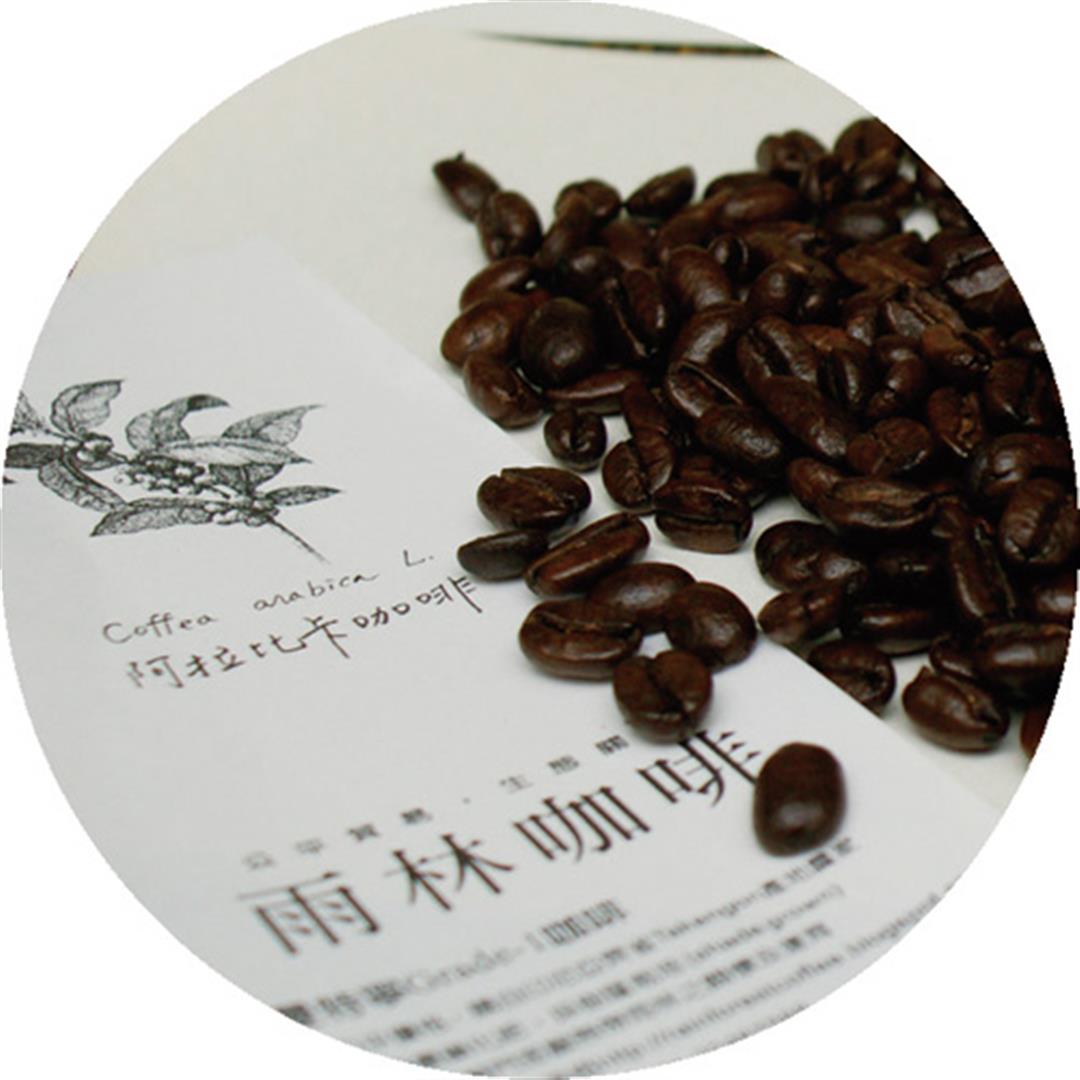Surveying the 90 sacks (totaling nearly 3000 kilograms) of coffee beans piled in his house, Wu Tzu-yu experiences complicated emotions.
"A year ago it was just something I talked about, but here they are: coffee bags printed with the 'Rainforest Coffee' mark. They've truly arrived!" With a sense of accomplishment on the one hand, mixed with frustration at the difficulty in bringing his entire idealistic plan into fruition on the other, there is a bittersweet taste when he gazes upon the mountain of coffee piled before him....
The coffee, which Wu says he "couldn't finish drinking in 100 lifetimes," is top-grade Arabica for which he paid 3-5% above local market price four months ago to directly import from Indonesian farmers.
Wu, who is 36, has large eyes, thick eyebrows and long hair tied in a ponytail, which he hasn't cut since the 921 Earthquake in 1999. But unexpectedly, beneath that rough exterior, you find a sensitive, detail-oriented and almost childlike mind.
After the quake, Wu participated in reconstruction work in his severely damaged hometown of Tungshih for a long period. Four years ago, after the South Pacific tsunami, he went with several senior members of Taiwan's social movements-including the architect Hsieh Ying-jun and Su Shih-wei, the executive director of the Ta Ai Community Affairs Center, to Aceh in Indonesia, where the devastation had been particularly severe. The visit prompted him to gain a greater understanding of Indonesia. Later, a professor he studied under, Yu Yue-hwa of National Taiwan University's Graduate Institute of Environmental Engineering, helped create a sustainable development plan in Bakkara, a village in northern Sumatra. That in turn planted the seed for Wu to sell "rainforest coffee" from Sumatra in Taiwan.
Wu learned that Indonesia produces 350 thousand tons of coffee a year, making it the fourth largest producer in the world; that 2 million hectares of Sumatra's rainforest was disappearing every year; and that the natural resources that Taiwan consumes would require 29 Taiwans to supply-a fact that made him an "environmental exploiter" himself. Armed with this new knowledge, he decided to do something for Indonesia's benefit.
"If there is no close examination of the causes and no humble reflection, then there is no way for sympathy and understanding to occur and for action to unfold," says Wu.
Currently, almost all of the "fairtrade coffee" marketed in Taiwan is purchased from fairtrade-licensed Western dealers. Wu, on the other hand, decided to purchase the coffee directly from the farmers. In order to raise funds, he began to write emails to his friends, asking them to forward his message to their other friends. Full of idealism and ambition for his "Rainforest Coffee" plan, he hoped to get 400 regular customers to commit to purchasing a pound a month over the next two years. The response turned out to be much weaker than he had anticipated-he currently has only 20-plus customers-but Wu nonetheless went in December 2007 to visit Takongon, where the coffee is produced in Aceh. In June 2008 he spent NT$800,000 to buy the first lot of three metric tons from farmers.
"Rainforest Coffee has gone the route of a social enterprise, with profits being returned to the local farmers rather than shareholders," Wu notes. The whole plan can be divided into three parts. It all starts with fair trade. He wants the trade in coffee to be transparent, so the accounts are completely open, as is the use of profits.
Next, the "rainforest" plan aims to take the profits from the coffee trade to care for and rehabilitate tropical rainforests.
The program to support rainforest research has already started. In June Wu Tzu-yu signed an agreement with the chairman of the biology department at the University of North Sumatra to provide US$7,500 worth of support for a professor (US$5000) and five graduate students (at US$500 each). Under the agreement, they began in September to conduct basic research into the local tropical rainforest, and to compile a database.
"I sincerely hope they will become the seeds of alleviating poverty in Indonesia," says Wu with deep feeling. With a cash-flow crisis, since less than 10% of the Rainforest Coffee has been sold thus far, the research money was contributed by Yu Yue-hwa.
Wu has drawn up a two-year timeframe: if the plan is working by that point, he hopes to go a step farther and pursue rainforest rehabilitation, using leased or purchased land.
Wu admits that there is something "very romantic, almost fantastical" about his plan. Yet people are great because of their dreams. If he fails, it will be a "beautiful failure"!
Wu is moved that the 20-plus early supporters of Rainforest Coffee, in addition to close friends, also include many complete strangers who offered their support after only reading his email. These supporters have been a great source of support for Wu: "For their sake, I want to realize the plan, no matter how difficult it is," Wu says with determination.

From the packaging to the purchasing and sales, Wu Tzu-yu has handled every aspect of fair-trade "Rainforest Coffee." It is his launching pad for changing himself and changing the world.